- Home
- stock market
- Incredible Images Of Wall Street Trading Before The Bloomberg Terminal
Incredible Images Of Wall Street Trading Before The Bloomberg Terminal
Brokers called the main trading room downtown "The Curb Exchange." This was before it became the American Stock Exchange.

Much of the time, deals would be conducted out of windows to traders on curbs.
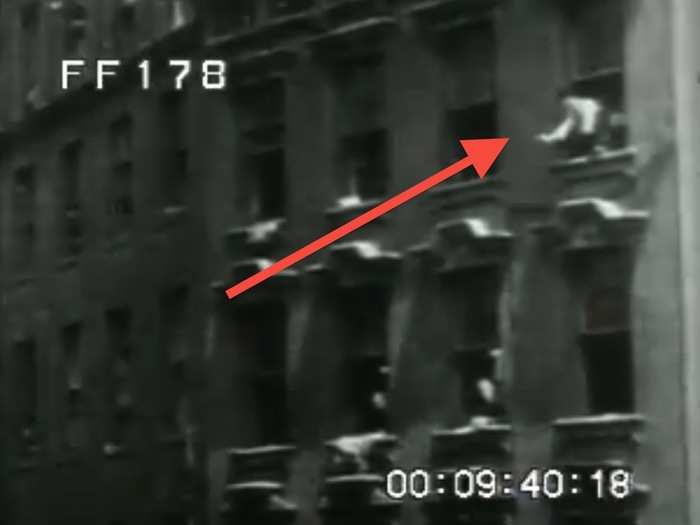
And traders were hardcore. Here they are on the Curb Exchange during a snowstorm.
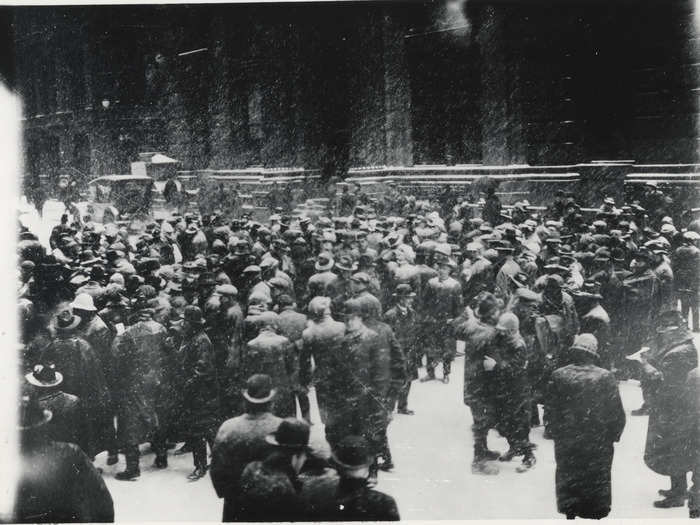
Check out this 15 second video on curb trading.

The first stock ticker — introduced in November, 1867 — was just a modified telegraph receiver. Thomas Edison later patented a widely-used updated version.
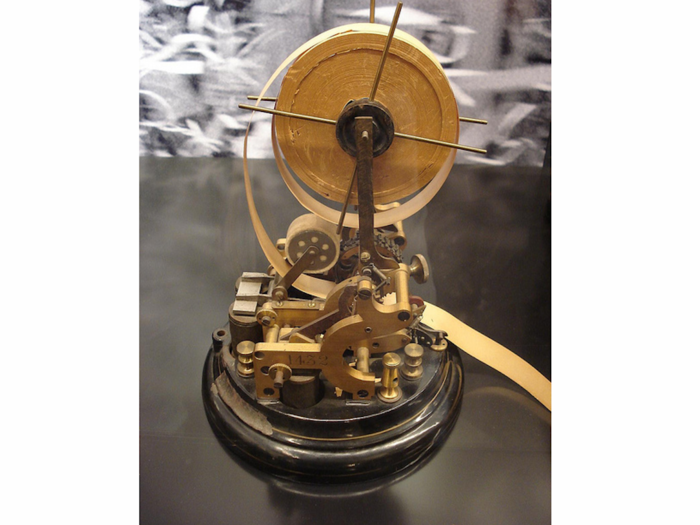
Some people saw the tickers as a novelty.
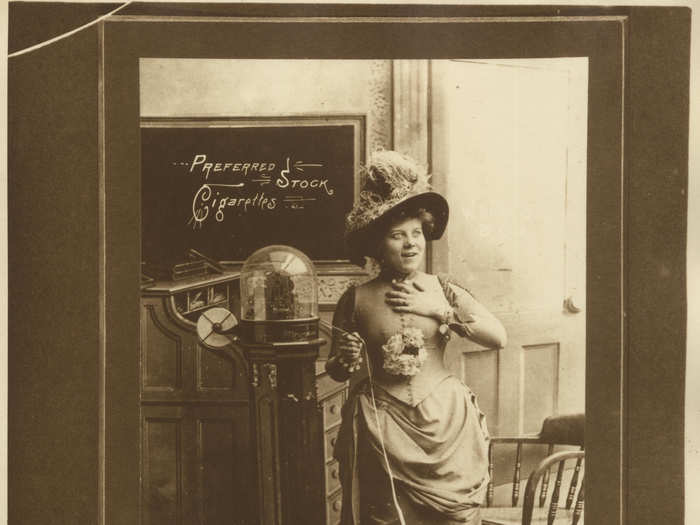
Print advertisement for "Duke's 'Preferred Stock' Cigarettes."
But they were also a symbol of inequality. This 1911 image from Life Magazine shows a man studying stock prices as "the losers" point at him from across the room.
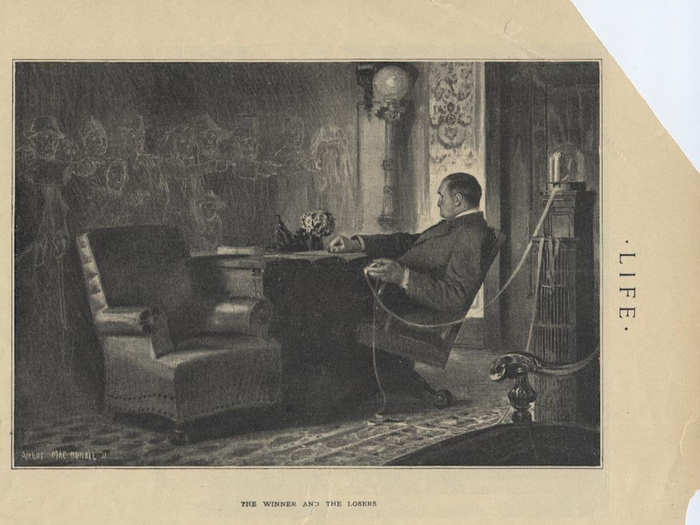
Telegraph wires (many of which would have connected tickers) created a virtual canopy above downtown Manhattan.
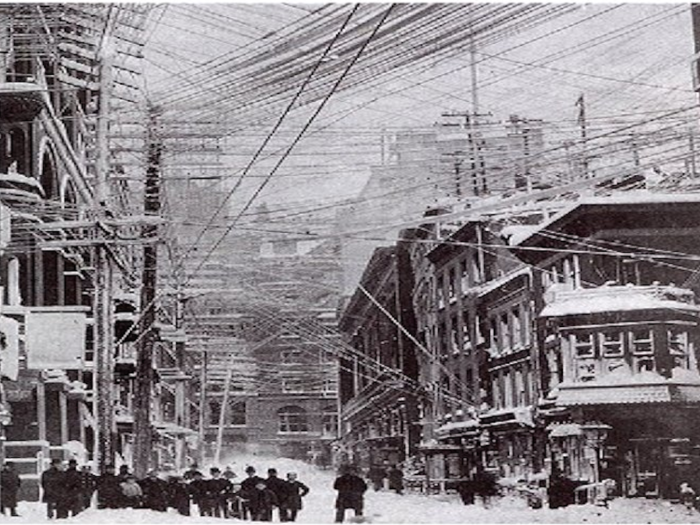
Photo circa late 19th century.
Here's ticker tape from Black Tuesday (October 29, 1929), showing the first trades of the historic day. You can see the date on the top left.
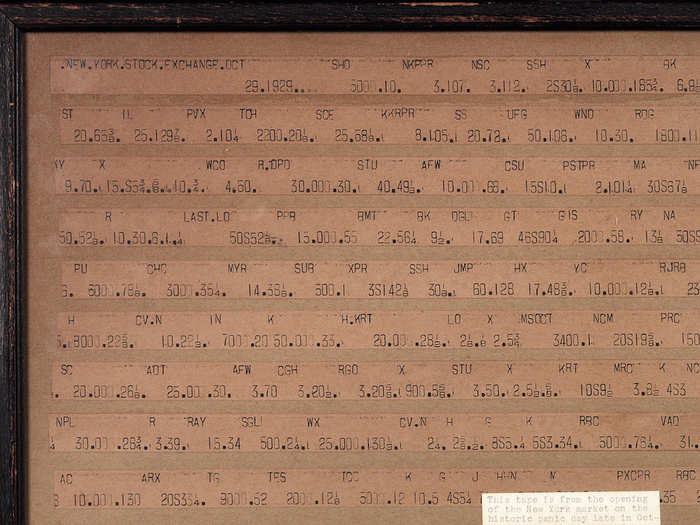
Here's how the day ended. Notice the volume steadily increasing throughout the day.
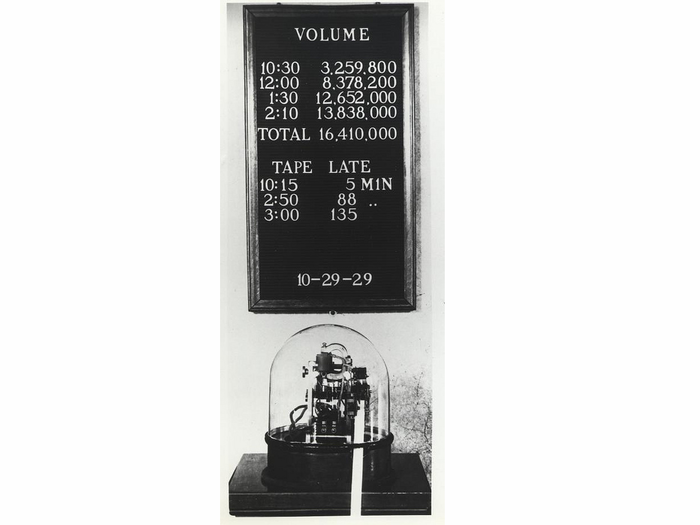
By 1926, a broad-sheet version had been developed by Dow Jones. Here's a fancy Art Deco version with a clipboard.
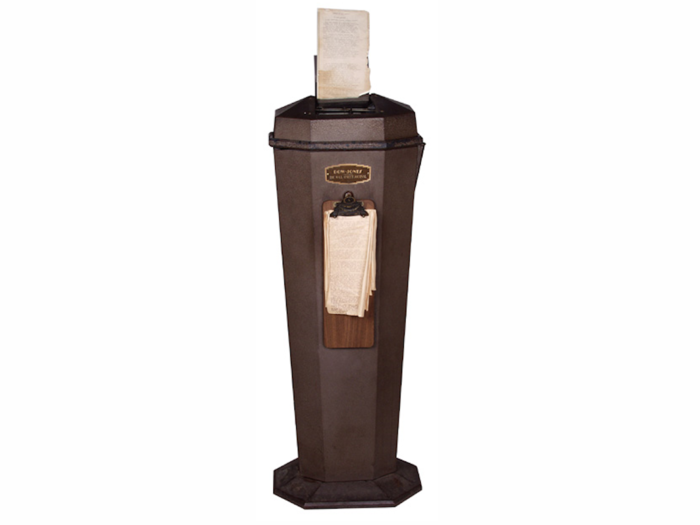
Here's a photo of trader on Wall Street in a raincoat at a trading post.
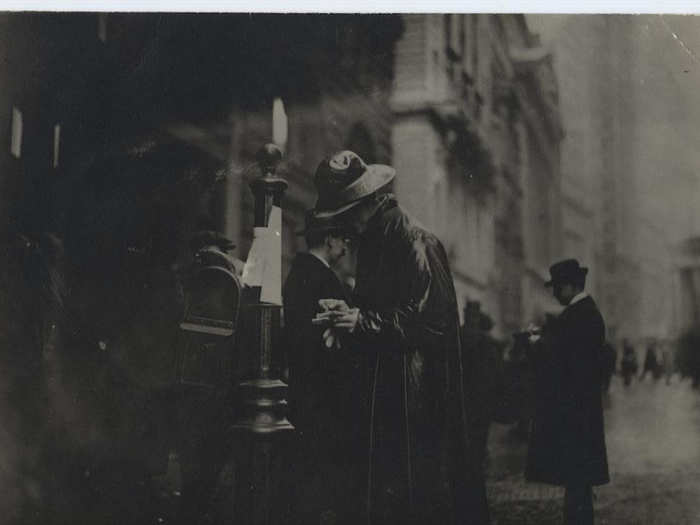
Ticker tape actually persisted as late as the 1970s. With the Dial Teleregister (created in 1932) you could dial-in a stock, and its bid and ask would be displayed.
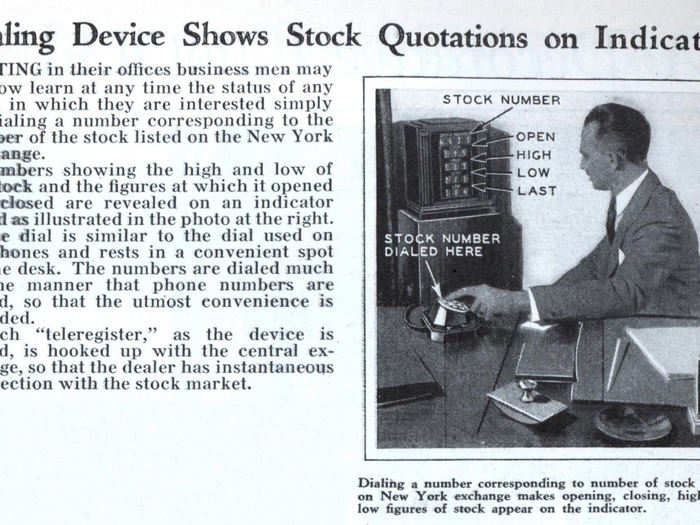
Here's a more handsome version.
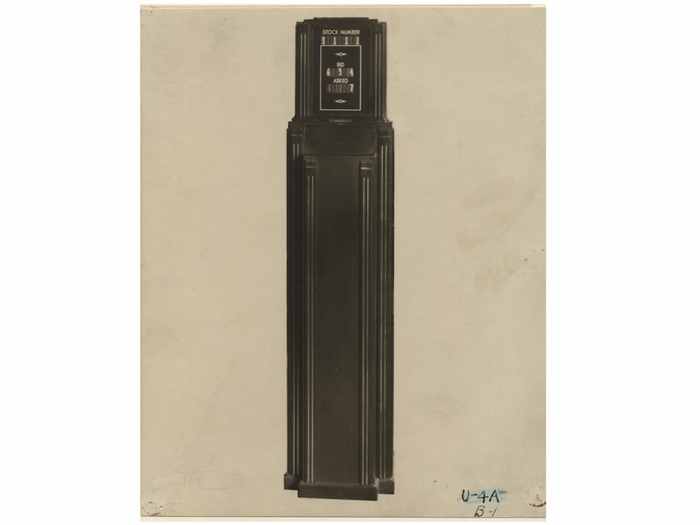
The industrial version — the quotation board — marked the end of chalkboards on Wall Street.
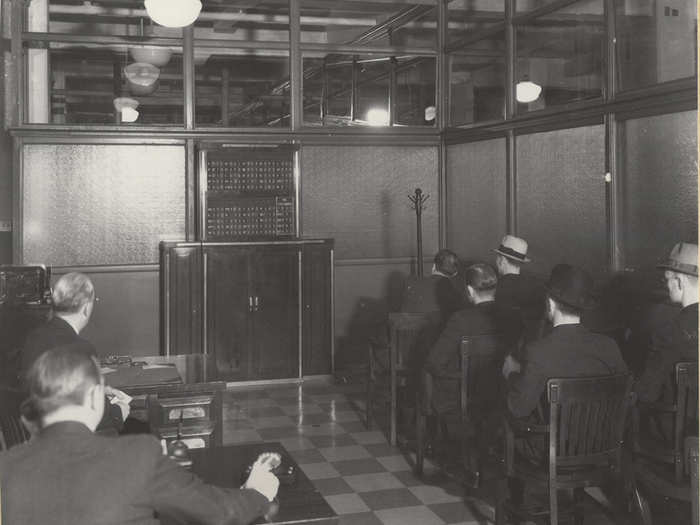
Here's how it worked. From a central transmitting station in New York City, Teleregister provided data to over 400 boards throughout the country.
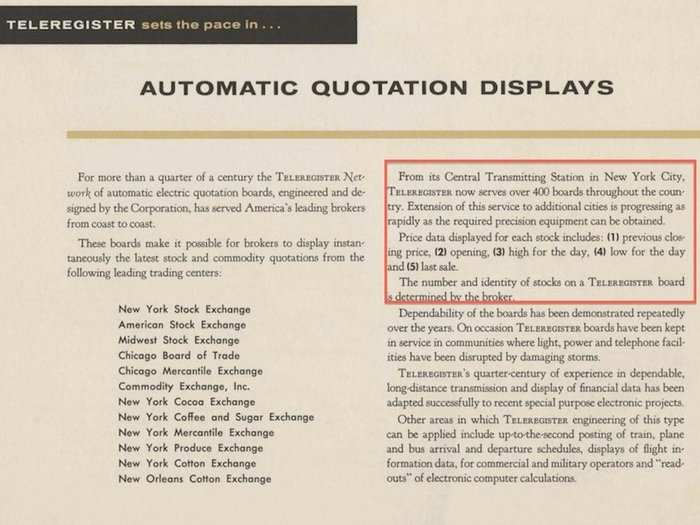
Here's one section of the aforementioned Central Transmitting Room that controlled Teleregister prints.
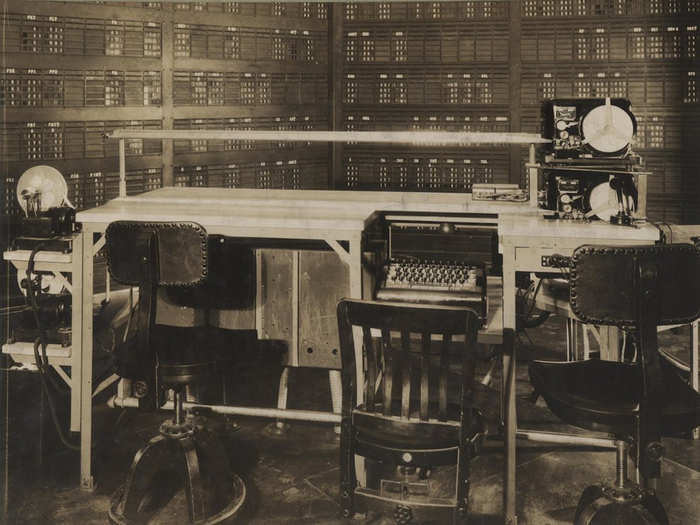
The coolest image we found: a 1930s broker's office at the firm of Benjamin Block & Co., featuring various ticker tape machines and stock quote board.
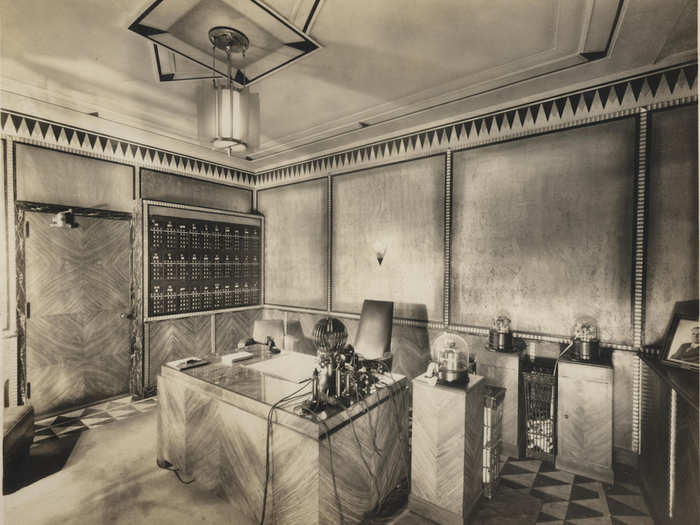
AKA your steampunk Bloomberg terminal.
The stock exchange had a "Quotation Room" where people would answer requests for stock prices within 60 seconds (1943).
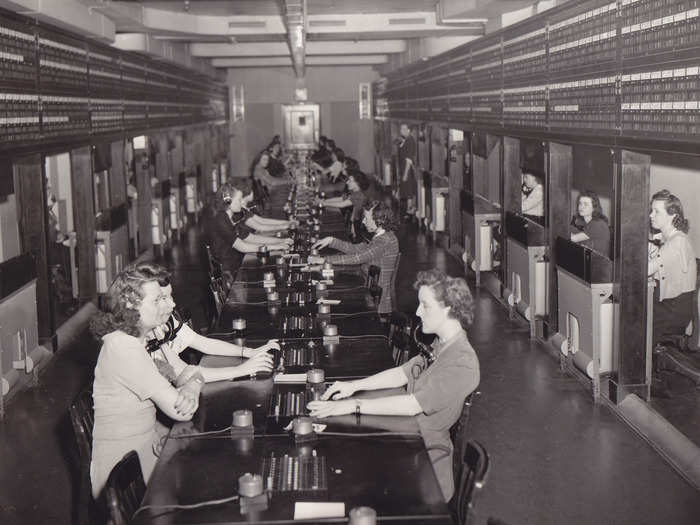
According to a caption on the back of the photo, "due to manpower shortage, more and more women are finding employment on the 'Street'." Remember, this is during World War II.
Versions of these persisted until digital displays came along. Here's what one looked like in 1955.
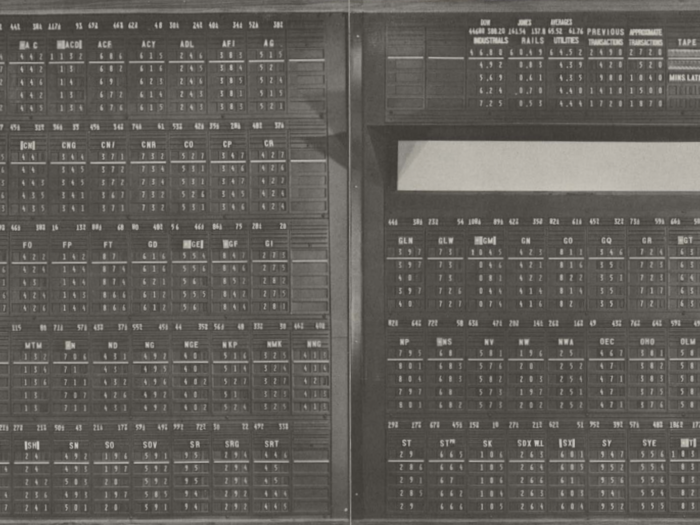
But tickers still existed well into the latter half of the century. Here's a woman at checking "high speed tape and quotations."
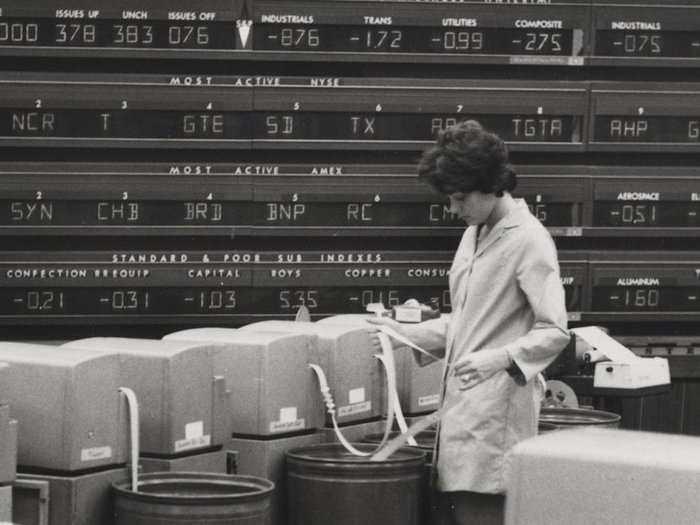
Source: EliteTrader
And here's a Trans-Lux "Personal Ticker."
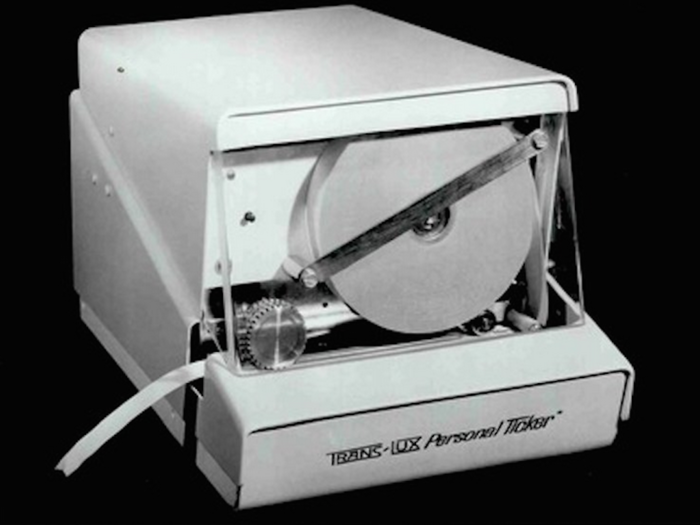
"In the 70s if you had money to spend you can avail yourself" of one, according to an EliteTrader.com commenter.
By the 1970s, things start to get slightly more familiar. Here's Bunker Ramo's video terminal. Bunker Ramo is now owned by Honeywell.
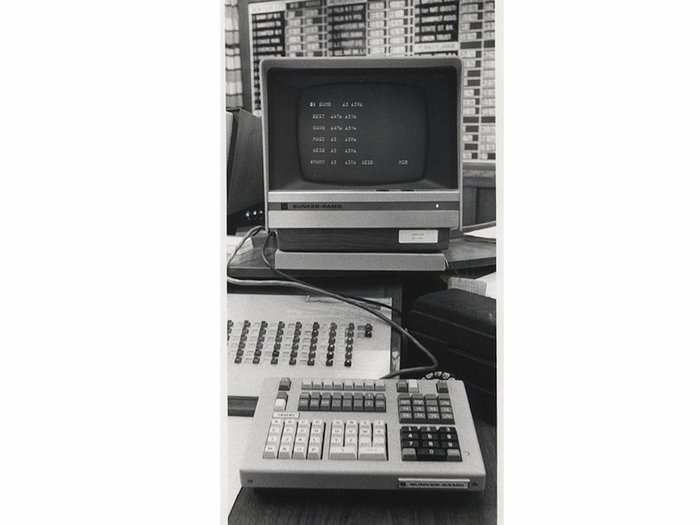
A woman at a brokerage's terminal in the '70s, using one of the last ever ticker machines. It was "high speed" at 900 characters per minute.
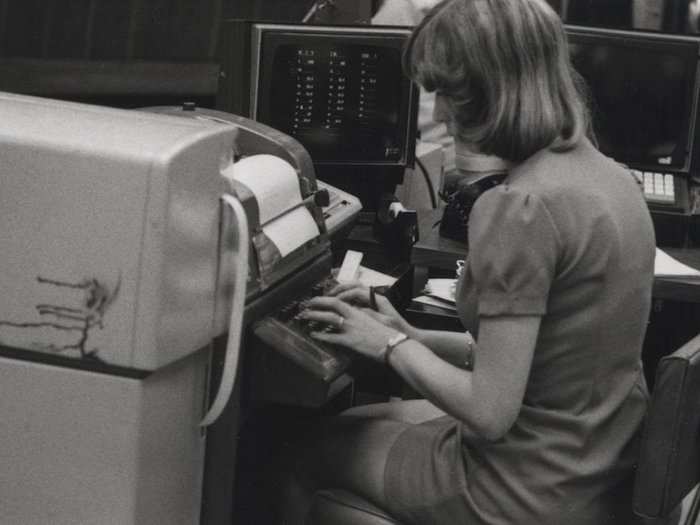
Here's the description from EliteTrader: "Here is a girl working on a teletype one of the KSR series, notice the two Ultronic's and the high speed 900 series ticker. (900 characters per minute) Those were the last ever ticker machines built. Oh and back in the days you had different tapes then in the mid 1970s and up you had the consolidated tape but you still had the last sale tape and the bid and ask tape."
By the eighties, the big time tech player was Quotron. Here's what one of their terminals looked like on Black Monday, October 19, 1987.
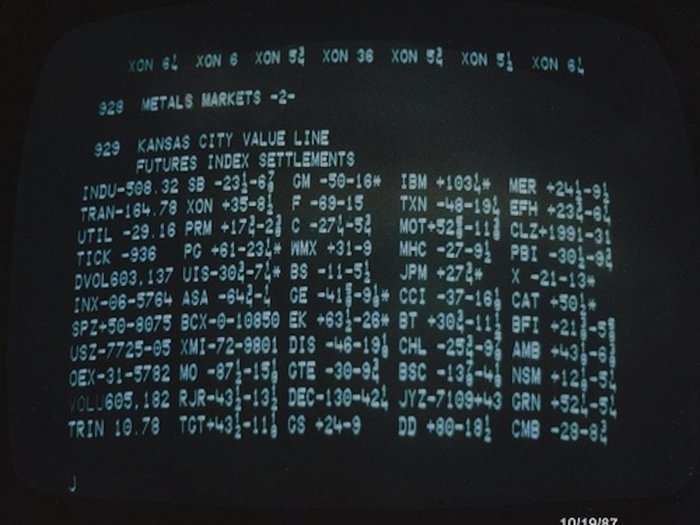
Quotron was a household name back in the day. They were eventually sold to Reuters.
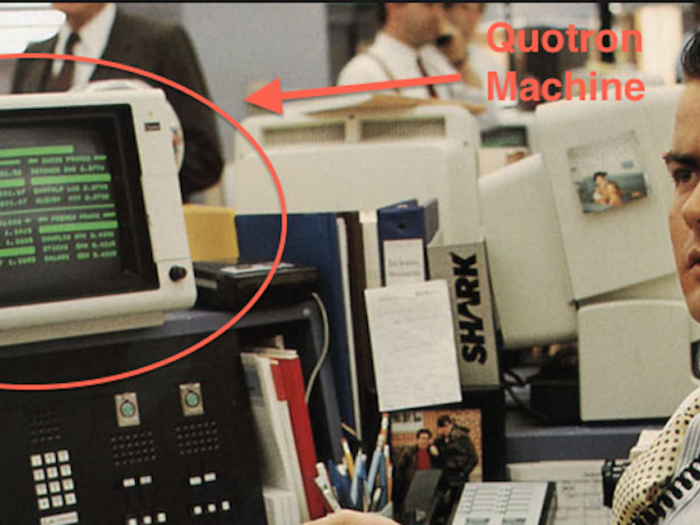
"Up until 1990, many of the quote vendors forced customers to use proprietary hardware so they would not lose control over the data. Quotron and ADP had a little truck that rode around Manhattan delivering hardware," according to one account.
Behold, the handheld Quotron machine.
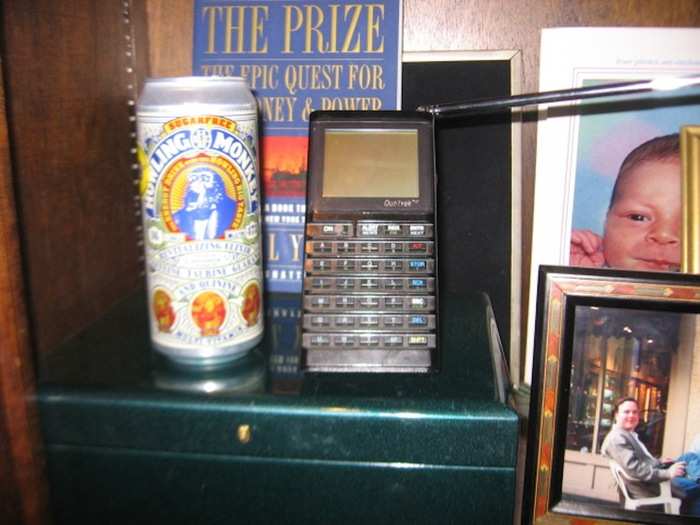
Modern trading desks are way more powerful.
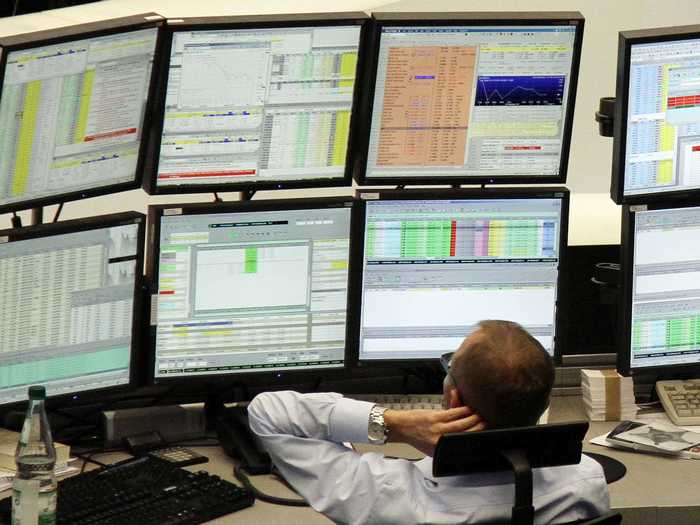
...but then again, they'll never be as cool as this.
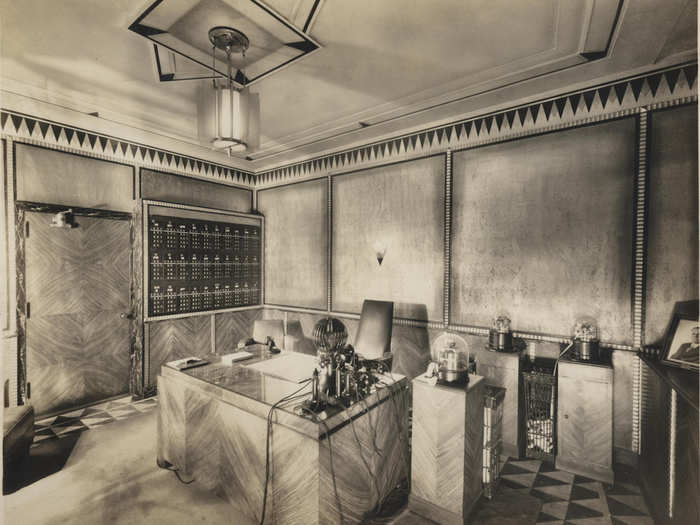
And if you're in the mood for something more modern, here are...
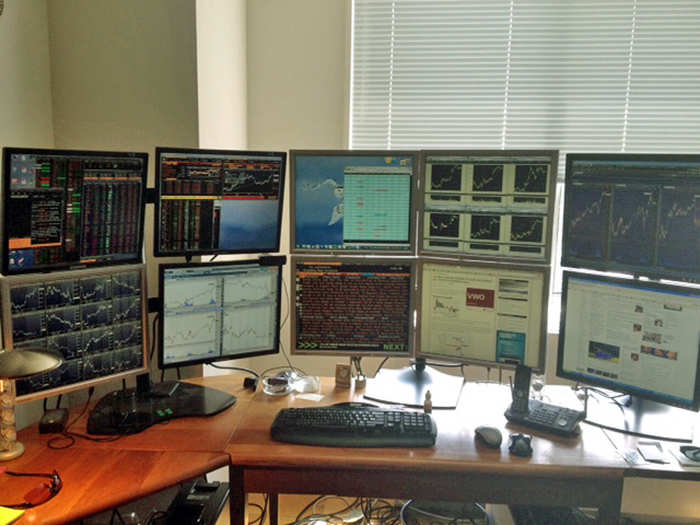
Popular Right Now
Popular Keywords
Advertisement